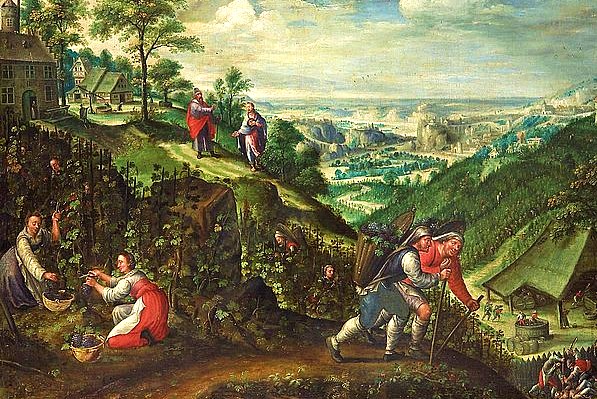Celebrate Sunday Mass - 10.8.23
OCTOBER 8, 2023 -- 27th Sunday in Ordinary Time
10/8/2023 (2 years ago)
By Deacon Keith Fournier
My friends, brothers, and sisters in the Lord
In an inspiring Apostolic Letter entitled "The Lords Day" (Dies Domini), Pope St John Paul II gave a masterful summary of the Christian understanding of Sunday, and underscored our obligation to honor the Lords Day. The Letter began with these words:
"The Lord's Day -- as Sunday was called from Apostolic times -- has always been accorded special attention in the history of the Church because of its close connection with the very core of the Christian mystery. In fact, in the weekly reckoning of time Sunday recalls the day of Christ's Resurrection. It is Easter which returns week by week, celebrating Christ's victory over sin and death, the fulfilment in him of the first creation and the dawn of "the new creation" (cf. 2 Cor 5:17). It is the day which recalls in grateful adoration the world's first day and looks forward in active hope to "the last day", when Christ will come in glory (cf. Acts 1:11; 1 Th 4:13-17) and all things will be made new (cf. Rev 21:5)".
Sometimes, Catholics and other Christians refer to Sunday as a "Christian Sabbath". Though well intentioned, this is incorrect. Sunday is "the Lords Day". This apostolic letter does a particularly good job of explaining this important distinctive. It cites the biblical sources and the writings of the early Church manuals, and the early Church Fathers. This distinctive is a part of the unbroken Christian tradition.
In the first reading of Sunday Mass, we heard from the great Hebrew Prophet Isaiah a portion of what he calls the Lords "Love Song for the Vineyard." The people of the Covenant had been given the Law, the Prophets, and His special favor. Israel was like a Vineyard; the vines were planted in good soil - but they bore sour fruit. Israel did not choose the Lord and His Ways, but sinned, and practiced idolatry. The Image was a familiar to the Jewish people because the land was so full of vineyards. The Holy Spirit, speaking through the Prophet Isaiah, uses it as an allegory to call them back to fidelity to the Covenant.
In the second reading we heard an excerpt from the 4th chapter of the Apostle Paul's letter to the Philippians. He instructed the early Christians - and us - about how to avoid sin, how to cooperate with grace and bear the fruits of holiness. How? By living lives of constant prayer, and gratitude. Both require cultivation and fertilizing. They also require following the teaching of the Bible and the Apostolic instruction. This is how we can grow and bear fruit in our own Christians lives as well.
Jesus uses the imagery of the Vineyard in the parable we heard from St. Matthews Gospel in reference to the New Israel, the Church. The Lord is the true Vine, and without His Grace, we cannot bear the fruit of the Kingdom. The Catechism of the Catholic Church presents the Church as a vineyard: "The Church is a cultivated field, the tillage of God. On that land the ancient olive tree grows whose holy roots were the prophets and in which the reconciliation of Jews and Gentiles has been brought about and will be brought about again. That land, like a choice vineyard, has been planted by the heavenly cultivator. Yet the true vine is Christ who gives life and fruitfulness to the branches, that is, to us, who through the Church remain in Christ, without whom we can do nothing." (CCC # 755)
We have been planted in the vineyard of the Church. If we want to bear the fruits of the kingdom - we must turn away from sin, be converted and cooperate with grace.
Have a Blessed Lords Day,
Deacon Keith Fournier, JD, MTS, MPhil
Dean of Catholic Online School
Copyright 2026 Catholic Online.

